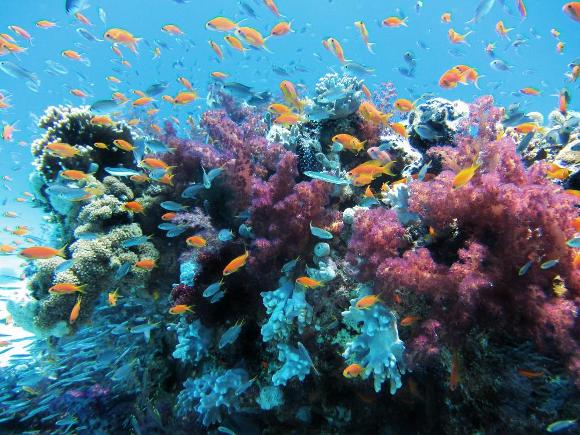Examining how ridge-to-reef governance in Palau can enhance coastal food security in a changing climate
The Republic of Palau, a Freely Associated State of the U.S. and a global leader in ocean conservation, recently implemented the Palau National Marine Sanctuary, which closed 80% of its ocean to fishing. As offshore fish become scarcer in the domestic market, managers have begun to worry about increased harvesting pressure on already overfished nearshore environments. This pressure, in addition to stressors from land-use change, sea-level rise, and warming oceans, could threaten the food and economic security of many Palauans. However, adaptively managing stressors in an integrated way can mitigate declines and even promote recovery, while still being cost-effective, resulting in direct benefits to coastal communities.

This project will characterize the dependence of Palauans on nearshore fisheries for subsistence and livelihoods, and map areas where land use and climate change are threats. The project team will then evaluate if, where, and how different governance institutions are protecting ecological structure and function with an integrated “ridge-to-reef” perspective, i.e. holistically including ecosystems from the ridges of the mountains to the reefs at the coastline. Results will illuminate the connectivity of Palauan communities to nearshore resources and highlight opportunities to enhance ridge-to-reef governance structures to support adaptation. With an aim to ensure food and economic security, the Palau International Coral Reef Society, a project partner and the pre-eminent regional coastal science center, can use this information to prioritize action and bolster governance capacity at the most critical sites.
Billions of people globally, and hundreds of thousands of Pacific Islanders, depend on the oceans as their primary source of food, yet coastal resources across the region are threatened by changes on land and in the ocean. Adaptively managing coastal systems from ridge-to-reef to maintain key ecosystem structure and function could help ensure the livelihoods and food security of vulnerable coastal communities regionally. The analysis in this project examining adaptive governance could contribute to broader regional food security outcomes.
PROJECT DETAILS
FUNDED:
FY2020
PI:
Kirsten Oleson
Associate Professor of Ecological Economics, UH Mānoa
Co-PI:
Michelle Harangody
Department of Geography and Environment, UH Mānoa
Collaborators:
Staci Lewis
Stanford Center for Ocean Solutions
Yim Golbuu
Palau International Coral Reef Center

